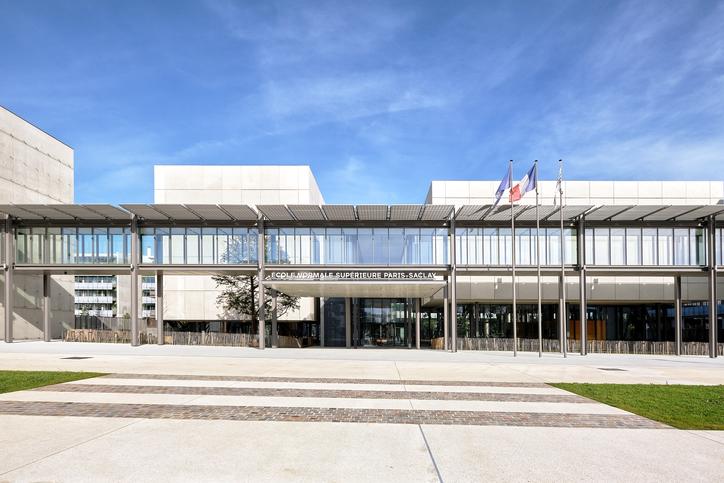
Shanghai Rankings 2023: Success of France's New University Models
French higher education institutions are on the rise. This is the signal sent to France by the new Shanghai rankings, published on August 15, 2023, distinguishing no fewer than 27 institutions, including four in the Top 100, and awarding a remarkable position to the Université Paris-Saclay, which enters the Top 15. According to Sylvie Retailleau, France's Minister of Higher Education and Research, these rankings demonstrate "the success of France's new university models."
" Ce palmarès 2023 valorise cette année encore à l'international l’investissement des chercheurs et enseignants-chercheurs français ". A l’instar de la ministre de l’enseignement supérieur, de nombreux acteurs institutionnels de premier plan ont réagi sur X (anciennement Twitter) à l’annonce de ce classement, à commencer par le Président de République qui, s’adressant " aux acteurs de l’enseignement et de la recherche ", estime qu’ils font " de la France une grande Nation de formation, de recherche et d’innovation ". Même réaction de la part de la Première ministre, constatant de même que " nos universités nous font honneur ! ".
Quatre universités françaises dans le Top 100
Dans le détail, sur les 1000 établissements classés, la France est citée 27 fois et quatre fois dans le Top 100.
En tête des établissements français, à la 15e place, se situe l'université Paris-Saclay qui est aussi le premier établissement européen du classement, gagnant une place par rapport à l'édition précédente. Le classement de Paris-Saclay, université créée en 2019, permet à la France, souligne la ministre, de " conserver pour la quatrième année consécutive son 3e rang mondial, sur la base du nombre d'établissements dans le top 20 ", après les Etats-Unis et le Royaume-Uni.
Paris-Saclay est suivie de trois autres universités, qui enregistrent des " progressions remarquables au plus haut niveau du classement ", selon les mots de la ministre. Il s’agit de :
-
Paris Sciences Lettres (41e position), constituée par l'intégration de onze institutions académiques et de recherche, avec le soutien de trois organismes de recherche ;
-
Sorbonne Université (46e), née en 2018 de la fusion des universités Paris-Sorbonne et Pierre-et-Marie-Curie ;
-
l'Université Paris Cité (68e), créée en 2019 en tant qu'établissement expérimental et issue de la fusion des universités Paris-Descartes et Paris-Diderot ainsi que de l'intégration de l'institut de physique du globe de Paris (IPGP).
14 établissements français dans le Top 500
Plus des deux tiers des établissements, implantés dans toute la France, distingués par le ranking de Shanghai sont classés dans la première moitié du classement, c’est à dire dans le Top 500.
C’est le cas de 14 établissements :
-
l’Université Grenoble-Alpes (entre la 101e et la 150e place) ;
-
Aix-Marseille Université (151-200) ;
-
l’Université de Montpellier (151-200) ;
-
l’Université de Strasbourg (151-200) ;
-
l’Université Lyon 1 – Claude Bernard (201-300) ;
-
l’Ecole Normale Supérieure de Lyon (201-300) ;
-
l’Université de Bordeaux (201–300) ;
-
l’Université de Lorraine (201-300) ;
-
l’Institut Polytechnique de Paris (301-400)
-
l’Université Toulouse 3 – Paul Sabatier (301-400) ;
-
l’Université de Lille (301-400) ;
-
l’Université Toulouse 1 – Capitole (301-400) ;
-
l’Université Côte d’Azur (401-500), qui enregistre une évolution de 200 places, et l’Université de Rennes (401-500) avec une progression identique.
Au-delà, entre la 501e et la 1000e place, on trouve encore neuf établissements français, tels que l’Université Clermont-Auvergne, l’INSA de Toulouse, l’Université de Bourgogne, l’Université de Nantes, l’Ecole des hauts études en Sciences sociales, l’Université Paris-Est Créteil Val-de-Marne, l’Université de Savoie, Montpellier Business School et l’Université de Poitiers (qui entre cette année dans le classement).
Le succès des nouveaux modèles d’universités françaises
Au vu de ces résultats, la ministre française de l’enseignement supérieur et de la recherche relève trois éléments fondamentaux qui font que " le classement de Shanghai valorise le succès des nouveaux modèles d’universités françaises " :
-
parmi les établissements classés, 12 d’entre eux sont issus de la politique de regroupement (selon loi de 2018 relative à l’expérimentation de nouvelles formes de rapprochement, de regroupement ou de fusion des établissements d’enseignement supérieur et de recherche) ;
-
l’ensemble des huit universités françaises classées dans le Top 200 a bénéficié de financements dans le cadre de différents "programmes d’investissements d’avenir" depuis plus de 10 ans, des financements qui " ont contribué à la transformation structurelle des établissements, à l’enrichissement de leur offre de formation et à la définition de leur signature scientifique " ;
-
14 établissements classées sont porteurs d’une " initiative d’excellence ", l’un " des leviers mis à disposition, notamment dans le cadre de la loi de programmation de la recherche " qui s’avèrent " essentiels pour la reconnaissance du potentiel scientifique des universités françaises dans les années à venir ".
Une méthodologie basée sur la recherche
L’Université chinoise Jiao Tong et l’Academic Ranking of World Universities (ARWU) réalisent depuis 2003 un classement, mondialement reconnu, qui évalue surtout l’engagement des établissements d’enseignement supérieur dans des activités de recherche. Un mode de classement qui, selon nombre d’observateurs, bénéficie surtout aux établissements anglo-saxons.
Il a ainsi pour objet de repérer les 1000 meilleures universités mondiales selon six grands critères : le nombre d’alumni Prix Nobel et Médailles Fields, le nombre d’enseignants-chercheurs Prix Nobel et Médailles Fields, le nombre de chercheurs cités, le nombre d’articles publiés dans des revues telles que Nature and Science, le nombre d’articles indexés dans Science Citation Index-Expanded et Social Science Citation Index, ainsi que la performance académique des professeurs.
Related contents
Recommended News




















































